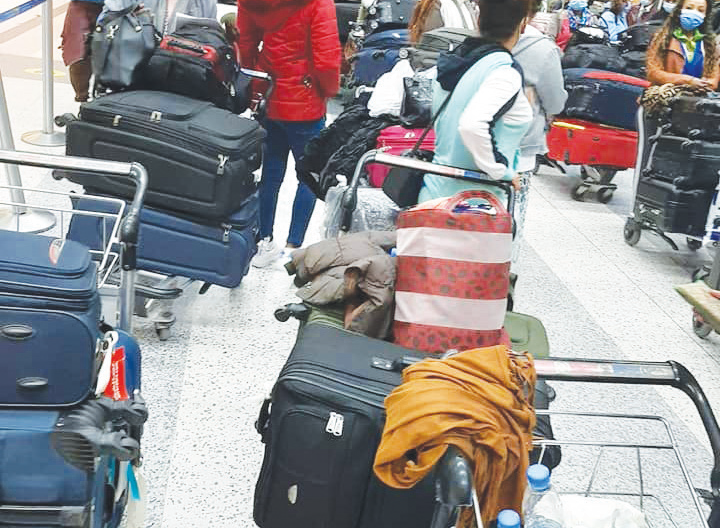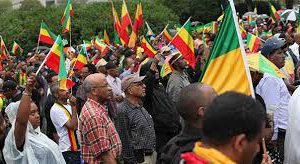
BY ABDUREZAK MOHAMMED
It is well comprehended that Ethiopia houses women constituting over half of its total population. Notably, the comprehensive strength of women, if possible, is instrumental in achieving other pillars of sustainable development, growth and prosperity in the country. Hence, their socio-economic and political participation has to receive due attention.
Scholars reiterate that women’s full and effective political participation is a matter of human rights, inclusive growth and sustainable development. As to individuals doing research on the area, the active participation of women, on equal terms with men, at all levels of decision-making and political involvement is essential to the achievement of equality, sustainable development, peace and democracy and the inclusion of their perspectives and experiences into the decision-making processes.
Women tend to work more than men across party lines, be highly responsive to constituent concerns, help secure lasting peace, encourage citizen confidence in democracy through their own participation, and prioritize health, education, and other key development indicators, including greater responsiveness to the needs of citizens, increased cooperation across party lines and a more sustainable future, according to the report of the National Democratic Institute (NDI).
The participation of women in political decision making positions was recognized as a political right after the adoption of the Universal Declaration of Human Right (UDHR) in 1948.
The constitution of federal democratic republic of Ethiopia provides a guarantee for gender equality and prohibits any discrimination on the grounds of gender. The share of woman in the House of Peoples’ Representatives grew from 13% to 37.5% from 1991 to 2015.
According to the report of the House, in the 2015, that is the 5th national general election, women took 212 out of 547 seats in the House of Peoples’ Representatives, which represented 37.5 percent of the total number of seats in parliament. This was promising compared to the previous trends.
There is also a practical change in the number of women’s representation in the executive branch. After the reform Ethiopia introduced in March 2018, the newly appointed Prime Minister Abiy Ahmed (PhD) has filled 50 percent of the cabinet seats with women and some 10 women out of 20 are running national activities at ministerial level.
Women’s political participation after the national reform is showing improvement. At the federal level, women’s empowerment is better, too. About 40 percent of the cabinet members are women, said Abeba Yosef, Chairperson of the Women, Youth and Social Affairs Standing Committee of the House of Peoples’ Representatives.
Having a short stay with The Ethiopian Herald, Abeba stated that the proportion of women in the House of Peoples’ Representatives has reached 37.5 percent.
“At regional states level, women are represented by 50 percent at the councils, although recorded minimal at executive levels,” she indicated. She also added that the participation of women in politics is good, but it is not enough compared to the total number of women of the country – about 51 percent of the total population.
According to her, the national reform has greatly contributed to the growth of women’s political participation. For the first time in Ethiopian history, President of the Federal Democratic Republic of Ethiopia, President of the Federal Supreme Court, Chairperson of the National Election Board of Ethiopia, and Mayor of Addis Ababa City Administration are females, she further said. “In the previous years, women were excluded from these positions; these higher positions were presumed to be solely occupied by men,” she stated.
As to her, when we come to the lower echelons of government, it is not as it should be,” she noted.
She also said that misconceptions about women have negatively contributed to a decline trajectory of women’s political participation. In the past, women were more likely to run away than to get involved in politics, she added.
According to her, political parties did not work for women to participate in politics. “I believe that much can be garnered at the national level if societal misconceptions about women are much more modified.”
If we look at the higher education institutions, many women are doing encouraging activities by overcoming different obstacles, she indicated.
She also advised that the main tool to improve women’s political participation is creating awareness among the community holding a message that women can be potential change engines and equally perform activities if treated equally and fairly.
Evidences indicate that 51 percent of the total populations of the country are women. This number of the population could by no means be overlooked and it is quite difficult and unproductive to talk about development, peace, and overall development of the country without providing women with the right attention and care, as to her.
When we talk about national development, the issue of “How should we involve women?” must be considered, she said, adding that enabling women to participate in the politics actively has a great importance for the overall development of the country.
According to Abeba, Women Parliamentarians Caucus of the House of Peoples’ Representatives is working to empower female MPs to carry out their constitutional mandates as required. “It is also working to empower female members of the regional states’ councils.”
She also insisted that civic associations must play their part in empowering women to participate in politics. Political parties also need to keep their doors open for women to participate in politics, she urged.
In a related issue, during a discussion forum organized to encourage women engaged in the construction sector, President Sahlework Zewdie insisted that the effort geared towards empowering women should not be left only to one or two bodies and it is not an overnight process, too. Hence, it needs sustainable efforts.
The role that women have played for the overall development of our country has not been started today, she said, adding that they have done a lot of work for their country even in the absence of modernity.
“There should be no empty slogans on women’s issues; what we say must be what we do; actions and words must match, and words must be translated into practical actions,” she urged.
President Sahlework also stated that since women empowerment has added value in consolidating effort to come up with a strong nation, the support and encouragement of women should not a one stop activity, or campaign based-fashion. However, it has to be a full-time work engagement.
The president also noted, “Now there are opportunities for women to take higher positions and discharge decisive responsibilities.” Many women have been successful resisting pressures they have been facing ranging from home to a public arena, she added.
She said, “It is through education that future female leaders and heroines can be produced; women education has to be well eyed at as it is a viable weapon to defeat illiteracy and underdevelopment thereby bringing about a well-to-do and nation. Hence, women have to be strong in their education in order to sustain the national reforms.”
It is important to honor and remember heroines who left their mark on all sectors so as to produce more heroines; she said adding that honoring former heroines will lead to have more heroines as well as diligent actors in the future.
The Ethiopian Herald 18 April 2021




